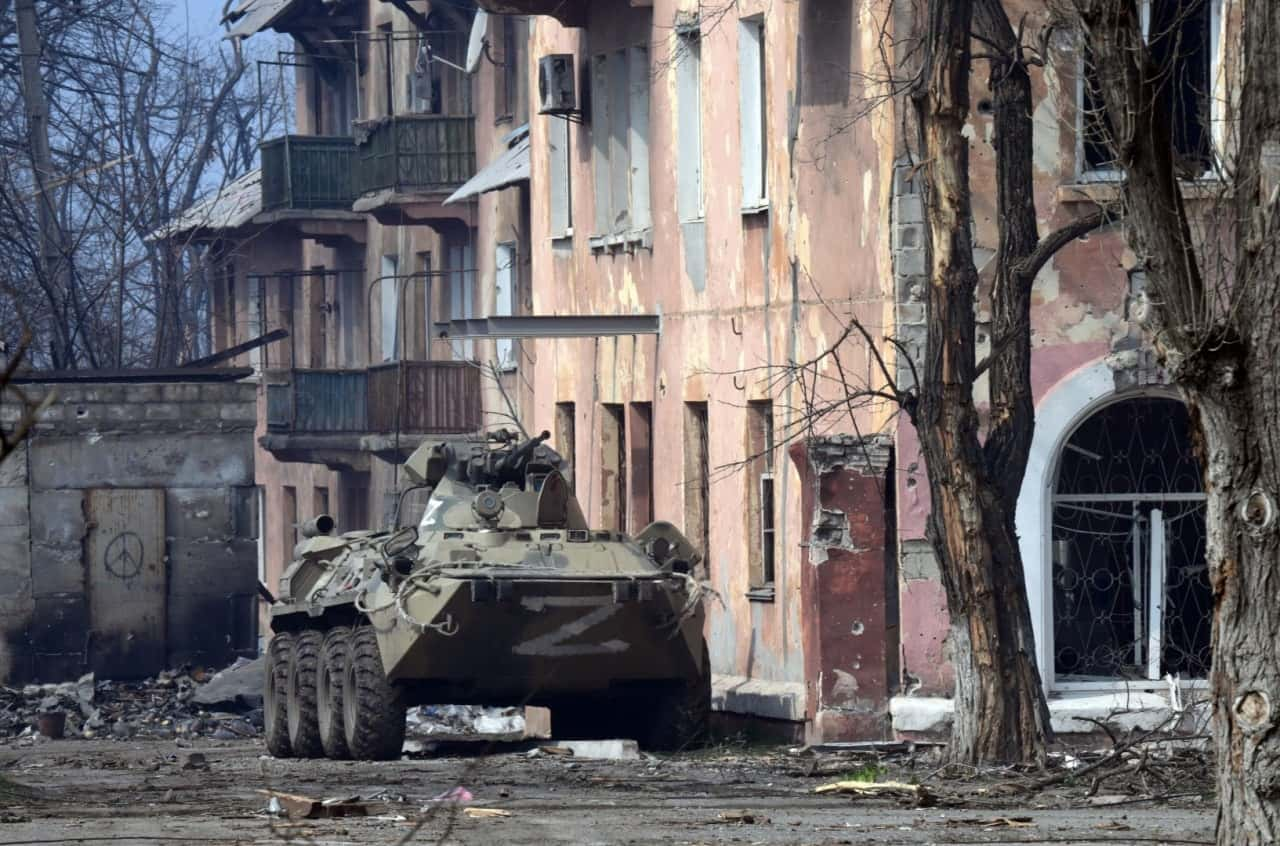Sarin, Soman, VX, or a mix of all? Reports on Russia using chemical weapons in Mariupol emerge

In a horrific new development, Ukraine claimed Russia used a chemical weapon in an attack on Mariupol on April 11, 2022. "Today, the occupiers issued a new statement, which testifies to their preparation for a new stage of terror against Ukraine and our defenders," Ukrainian President Volodymyr Zelenskyy said early on April 12, responding to the attack.
Ever since Vladimir Putin launched the invasion in late February, the White House has warned that chemical and biological weapons were on the table, but few believed Putin would go as far as to use them. This comes amidst Russia's indiscriminate shelling of Ukraine, and the use of other controversial weapons like thermobaric bombs and cluster bombs. Putin has also not ruled out nuclear weapons, widely seen as a threat to keep NATO and the west away from fighting on the ground.
RELATED ARTICLES
Putin attends funeral with 'nuclear football' raising fears of Ukraine war escalation
Heroes of Borodyanka: How a small town armed only with rifles took on Russian TANKS
According to reports, chemical munitions were used on the port city of Mariupol, which is by far one of the worst affected areas by Russia's invasion. The city is on the verge of collapse, with Ukrainians running out of ammunition, while a catastrophic humanitarian crisis unfolds. Amidst all that, the city now faces the threat of chemical weapons.

What chemical agents did Russia use in Mariupol?
At the time of reporting, little information is available about the events on the ground. Reportedly, the chemical agent was dropped by a Russian drone, as claimed by the Azov regiment on Telegram. The group said a "poisonous substance of unknown origin" caused "breathing issues, respiratory failure, and vestibulo-atactic syndrome." the claims were also made by Ukrainian lawmaker Ivanna Klympush, who said an "unknown substance" caused respiratory failure.
Andriy Biletsky, the leader of the Azov volunteer regiment said on April 11 that three people were "poisoning by warfare chemicals, but without catastrophic consequences." Mariupol's Mayor did not confirm if the attack was indeed by a chemical agent, saying he is "waiting for official information from the military." So far, both the US and UK have acknowledged getting reports of chemical weapons, but have so far refused to confirm if that was indeed the case.
Defense Department press secretary John Kirby did however acknowledge that Russia could have used "a variety of riot control agents, including tear gas mixed with chemical agents, in Ukraine." The full extent of Russia's chemical agents stockpile is unclear, so the attack could be anything from Sarin to Soman, and VX to Cyanide. Verification is ongoing, so until we get a confirmed report, we cannot say for sure what agents the Russians used.

The attack on Mariupol came hours after a pro-Russian general in Donbas promoted the idea of chemical weapons to state media. Eduard Basurin said Russians should seize plants in Mariupol by blocking all the exits, "then we’ll use chemical troops to smoke them out of there." Around the same time, the Ukrainian parliament tweeted that residents in Donetsk should wear "protective face masks soaked in soda solution" after receiving reports of Russians using nitric acid in the city. It is unclear if those claims are linked to the ones being made about Mariupol.
The British Ministry of Defense has also warned that Russia could use phosphorus bombs to break Mariupol. While it isn't considered a chemical weapon, such bombs can cause intense burns, and their use on civilians is considered a war crime. If the claims are true, it would just add to the very long list of war crimes Russia has been accused of.










